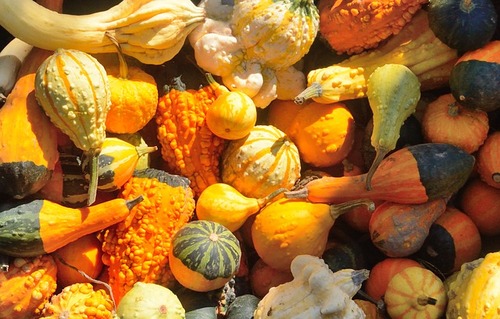Short answer
Sqaush is great for you. Squash comes in many varieties and is technically a fruit that is part of the pumpkin and gourd family. Squash offers a multitude of health benefits and is a great source of vitamins and minerals. Squash is low in fat,cholesterol and calories.
Recommended Alternative
Long answer
Squash has many nutritional and medicinal benefits. Squash is a good source of vitamin A in the form of beta-carotene which is a precursor that the body converts to vitamin A. Vitamin A is a powerful antioxidant that helps to combat toxic free radicals that enter our bodies daily. We live in a very toxic society and when toxins enter our body they can enter via our skin, our digestive tract and our pulmonary tract. These impurities have an adverse impact on the body and cause the formation of free radicals. These free radicals cause oxidation of the internal body that can lead to cellular damage and DNA damage. This can predispose to degenerative disease, inflammatory disease, cardiovascular disease, autoimmune disease, vital organ damage, skin disease and malignancy. Vitamin A is also important for healthy eye site and supports a strong immune system. Vitamin A is a natural antimicrobial and promotes healthy skin and mucous membranes. Vitamin A boosts bone growth, assists in a healthy neurologic system, can lower cholesterol and has cancer fighting properties.
Squash also contains significant amounts of vitamin C and vitamin E that boosts its antioxidant, immune and anti-inflammatory properties. Squash has vitamin K which helps clotting of the blood and also supports bone health. Squash is a good source of niacin, thiamine, pantothenic acid and folate. Squash is rich in minerals that consist of potassium, manganese, copper, phosphorus, calcium and iron. Most squash is high in fiber and relatively low in carbohydrates so if you have challenges with your glucose levels eating small to moderate amounts (1-2 cups cubed squash daily) of squash can support healthy weight loss, stable glucose levels. The fiber content in squash also supports healthy glucose levels, a healthy digestive system and can be beneficial to prevent constipation and alleviate intestinal spasms, abdominal distention and flatulence.
Overall squash is very nutrient dense and these nutrients will support the detoxification pathways of the liver and other vital organs. Weight loss and the ridding of impurities in the body can help with metabolic syndrome-an epidemic disease state that is linked with a higher risk of type 2 diabetes, cardiovascular disease, hypertension and elevated blood lipids. Squash is low in sodium which also assists in maintaining a healthy blood pressure.
Because zucchini and most squash varieties are loaded with nutrients, low in fat, sodium, calories and cholesterol it is a good choice for pregnant women.
Possible long-term side effects
- easting large amounts daily could raise glucose levels

Benefits
- low in fat, cholesterol and calories
- low in sodium
- good source of vitamin a, c, e and k
- good source of niacin, thiamine, pantothenic acid and folate
- rich in minerals that consist of potassium, manganese, copper, phosphorus, calcium and iron
- high in fiber
- fuels detoxifying pathways
- good for weight loss and blood pressure
- can help regulate glucose levels
Our Wellness Pick (what is this?)
Butternut Squash Crackers
- Sea salt flavor
- Vegetable-based snack
- Wholesome ingredients
- Real butternut squash
 Approved by
Approved by 















